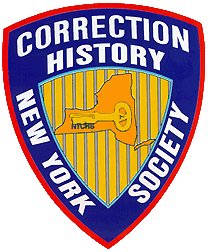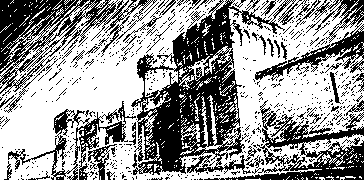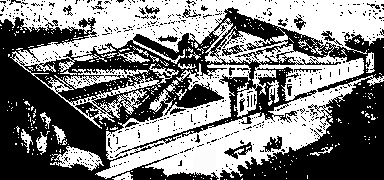|
On the Penitentiary System in the United States and Its Application in France By Gustave de Beaumont & Alexis de Tocqueville [Solitary workers vs. silent work force]
Labor of the criminals is necessary still under another point of view: their detention, expensive for society if they remain idle, becomes less burdensome if they labor. The prisons of Auburn, Sing Sing, Wethersfield, Boston, and Philadelphia, rest then upon these two united principles, solitude and labor. These principles, in order to be salutary, ought not to be separated: the one is inefficient without the other. In the ancient prison of Auburn, isolation without labor has been tried, and those prisoners who have not become insane or did not die of despair, have returned to society only to commit new crimes. . . .
[T]he founders of the new penitentiary at Philadelphia, thought it necessary that each prisoner should be secluded in a separate cell during day as well as night. . . . the convict, once thrown into his cell, remains there without interruption, until the expiration of his punishment. He is separated from the whole world; and the penitentiaries, full of malefactors like himself, but every one of them entirely isolated, do not present to him even a society in the prison. . . . As solitude is in no other prison more complete than in Philadelphia, nowhere, also, is the necessity of labor more urgent. At the same time, it would be inaccurate to say, that in the Philadelphia penitentiary labor is imposed; we may say with more justice that the favor of labor is granted. When we visited this penitentiary, we successively conversed with all its inmates. There was not a single one among them who did not speak of labor with a kind of gratitude, and who did not express the idea that without the relief of constant occupation, life would be insufferable. . . . The founders of the Auburn prison acknowledged also the necessity of separating the prisoners, to prevent all intercourse among themselves, and to subject them to the obligation of labor; but they follow a different course in order to arrive at the same end. In this prison, as well as in those founded upon the same model, the prisoners are locked up in their solitary cells at night only. During day they work together in common workshops, and as they are subjected to the law of rigorous silence, though united, they are yet in fact isolated. Labor in common and in silence forms then the characteristic trait which distinguishes the Auburn system from that of Philadelphia. Owing to the silence to which the prisoners are condemned, this union of the prisoners, it is asserted, offers no inconvenience, and presents many advantages. They are united, but no moral connection exists among them. They see without knowing each other. They are in society without any intercourse; there exists among them neither aversion nor sympathy. The criminal, who contemplates a project of escape, or an attempt against the life of his keepers, does not know in which of his companions he may expect to find assistance. Their union is strictly material, or to speak more exactly, their bodies are together, but their souls are separated; and it is not the solitude of the body which is important, but that of the mind. . . . At Auburn, they are really isolated, though no wall separates them. Their union in the workshops has, therefore, nothing dangerous: it has, on the contrary, it is said, an advantage peculiar to it, that of accustoming the prisoners to obedience. What is the principal object of punishment in relation to him who suffers it? It is to give him the habits of society, and first to teach him to obey. The Auburn prison has, on this point, its advocates say, a manifest advantage over that of Philadelphia. Perpetual seclusion in a cell, is an irresistible fact which curbs the prisoner without a struggle, and thus deprives altogether his submission of a moral character; locked up in this narrow space, he has not, properly speaking, to observe a discipline; if he works, it is in order to escape the weariness which overwhelms him: in short, he obeys much less the established discipline than the physical impossibility of acting otherwise. At Auburn, on the contrary, labor instead of being a comfort to the prisoners, is, in their eyes, a painful task, which they would be glad to get rid of. In observing silence, they are incessantly tempted to violate its law. They have some merit in obeying, because their obedience is no actual necessity. It is thus that the Auburn discipline gives to the prisoners the habits of society which they do not obtain in the prisons of Philadelphia. We see that silence is the principal basis of the Auburn system; it is this silence which establishes that moral separation between all prisoners, that deprives them of all dangerous communications, and only leaves to them those social relations which are inoffensive. But here we meet with another grave objection against this system; the advocates of the Philadelphia system say, that to pretend to reduce a great number of collected malefactors to absolute silence, is a real chimera; and that this impossibility ruins from its basis, the system of which silence is the only foundation. |



